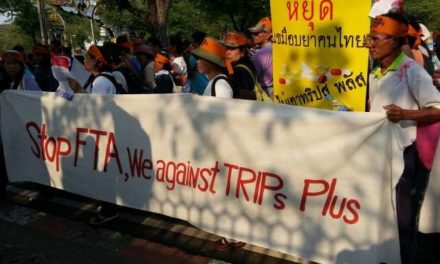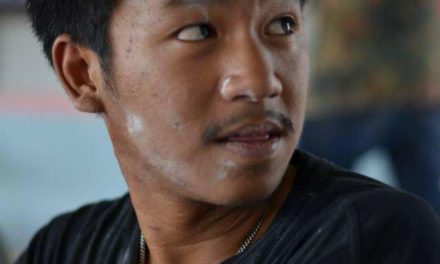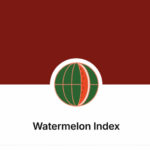Even experienced observers were surprised by the Big Bang that marked the restructuring of Thailand’s economy under the supervision of the International Monetary Fund (IMF). In return for an IMF bail-out, the embattled government of Prime Minister Chavalit Yongchaiyudh agreed to a key Fund condition and, on August 5, closed 42 more finance companies, in addition to 16 that had been declared shut down weeks earlier.
Biggest Bailout since Mexico
A week later came the payoff: the IMF and a number of countries led by Japan announced that they would pump in a total of $16.7 billion into Thailand, most of which would be used to replenish the country’s depleted foreign currency reserves. According to the latest official figures, reserves were down to $33.3 billion at the end of May and would now be significantly lower–some estimates put this at only $20 billion–owing to the costly but futile defense of the baht carried out by the Bank of Thailand in the month of June.
The bailout fund was smaller than the $40 billion bailout engineered by the Fund and the United States for Mexico following that country’s economic meltdown in 1994. In the Thai case, the role of principal country contributor is being played by Japan, which is committing $4 billion to match the IMF’s $4 billion. This is not surprising since Tokyo would have the most to lose in the event of a Thai collapse. Japanese corporations have about $8 billion worth of direct investments in Thailand, and Japanese banks are owed about half of Thailand’s $89 billion foreign debt.
Australia, Singapore, Malaysia, China, Indonesia, and South Korea, Hong Kong are also making contributions. China’s participation in the “rescue mission” is being widely commented on, with many interpreting it as a part of a sophisticated economic diplomacy designed to convince the region and the world that contrary to its image in the Western press, China is a responsible and sensitive global economic player.
But as in the case of Japan, for the rest of the consortium, fear was a greater motivation than image-building: the deep concern that the collapse of the Thai economy could drag down the rest of the Asia-Pacific region. As the Hong Kong Standard put it, “If the whole of Southeast Asia goes under, Hong Kong will be deeply affected…Hong Kong’s continued economic success is not set in concrete and there is no guarantee that currency speculators will not go for our dollar. Someday we, too, may be in need of help.”
As the price for its participation, however, Hong Kong joined the rest of the consortium in demanding what its Financial Secretary Donald Tsang characterized as “radical changes to the monetary and banking system in Thailand.” In addition to the finance company shutdown, other “reforms” announced by the government included a rise in the value-added tax from 7 to 10 per cent, significant cuts in government spending, a balanced budget, and an increase in utility prices. Also likely, according to the Asian Wall Street Journal, was a more rapid privatization of state enterprises and a reduction in corporate income taxes.
—————————————————————————————–
The IMF’s Seventh Cavalry
Contributor Contribution (in billion $)
IMF 4.0
World Bank 1.5
Asian Development Bank 1.2
Japan 4.0
China 1.0
Singapore 1.0
Malaysia 1.0
Indonesia 0.5
South Korea 0.5
Total $16.7 billion
——————————————————————————————
Fear, anger, and panic have gripped Bangkok following the announcement of the shutdown of the 42 finance companies. Depositors have accused the government of putting them at risk by keeping quiet for a long time over the real state of affairs in the affected institutions. Panic withdrawals hit some of the 33 finance companies that remained alive, with depositors trying to cash their promissory notes in order to move their funds to the more secure banks. Many others now distrust financial institutions altogether, with the Thai press citing interviews with people who worry that they might be left with no choices but to keep their savings under their mattresses.
Foreign Creditors and Local Banks Demand Bailout
While the anger of smaller promissory note holders in the axed companies struck a resonant chord with most Thais, the moves of the local and foreign banks to seek government guarantees for their loans to the moribund finance companies aroused popular opposition. Reflecting this sentiment, the Nation editorialized: “The penalities imposed on foreign creditor banks which have lent to the Thai private sector must be precise and applied equally…Thailand and Thai companies may bear the brunt of the financial crisis but foreign banks must also share part of the cost because of some imprudent lending. It would be irresponsible to lay the blame entirely on Thailand.”
Some commentators were even more scathing, with one columnist characterizing foreign finance capital as “a ravenous growing beast” that “needs Thailand as a place to feed.”
Despite such sentiments, however, on August 13, Prime Minister Chaovalit assured foreign and local creditors that the loans they had made to the bankrupt firms would be guaranteed by the government. This decision was justified on the ground that not compensating the creditors would provoke capital fllight and reduce Thailand’s attractiveness as an investment site.
How this will sit with the IMF is not clear. IMF representatives have been emphatic that the bailout fund is meant for balance of payments support, not to “clean up” the finance sector. On the other hand, the record shows very clearly that IMF and World Bank stabilization and structural adjustment loans extended to Mexico, the Philippines, and other severely indebted countries found their way, almost immediately, to the coffers of foreign creditors.
Waiting for Godot
The IMF’s coming is meeting with a curious response from people. The dominant impression one gets in Bangkok is akin to that of a roomful of rowdy kids awaiting the appearance of a stern disciplinarian whose reputation has preceded him. The prevailing attitude is one of resignation and acceptance of the Fund’s assuming virtual management of the Thai economy owing to the widespread sense that the government is completely incompetent and can longer be trusted to run the economy.
There are, of course, some enthusiasts, but these are mainly doctrinaire free market economists and technocrats who see the IMF as a necessary agent for the more complete liberalization of the Thai economy.
Then there are those with apprehensions stemming from their acquaintance with the IMF’s record in other countries. It has been over a decade since Thailand has experienced stabilization and adjustment programs under the Fund and its sister institution, the World Bank, so memories about living with or under the IMF are largely blurred. However, there are Thai analysts who know that IMF and World Bank structural adjustment programs went hand in hand with zero or minimal average economic growth for over a decade in Mexico, in the Philippines and, more broadly, throughout Latin America and Africa during the 1980’s.
Writing in the Nation, Tanai Khiaonarong, a Thai graduate student at the London School of Economics, asserted: “Whatever happens, the IMF and World Bank will squeeze every drop of money out of the Thai economy. They want borrowers to service their debt–not accumulate them. What they try to avoid is having to give debt forgiveness to these members. What happens in Thailand in the following years will put the critic’s case to the test–whether loans create solutions or more problems.”
IMF Control–The Final Stage of Liberalization?
Columnist Chang Noi (a pseudonym) sees the IMF takeover as a phase–perhaps the final phase–of the process of liberalization of the Thai economy that is likely to sweep away the last barriers to foreign presence in the local economy.
“Presumably,” he claims, “experience has taught the IMF that only a financial crisis overcomes this resistance to liberalization….Certainly, a financial crisis seems to be doing the trick here. The baht is afloat. Property magnates are clamoring for government to let foreigners in to boost the property market. Many of the finance companies which paid for the anti-foreign consultancy are now touting for foreign buyers. Finance licenses are available at fire-sale prices. Some experts believe that a secret condition for Japanese loan assistance will be greater inroads by Japanese banks.”
He concludes: “So, Thailand’s current crisis is just a stage in the liberalization programme. Where incidents involving gunboats were the trigger mechanism of the imperialism of free trade, financial crises play the same role in the imperialism of free finance.”
*Dr. Walden Bello is co-director of Focus on the Global South, a program of policy research, analysis, and action of the Chulalongkorn University Social Research Institute, and professor of sociology and public administration at the University of the Philippines. He is the author of several books on East Asian development, including Dragons in Distress: Asia’s Miracle Economies in Crisis (London: Penguin, 1991).









